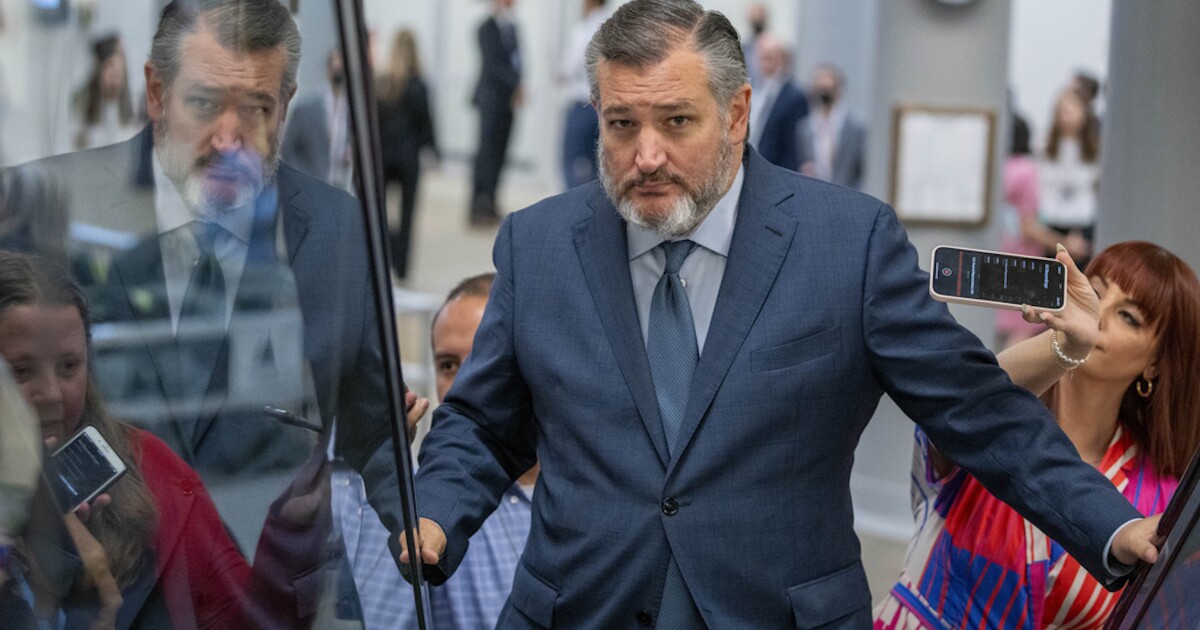

Sen. Ted Cruz (R-TX) said on Monday that Congress was unlikely to prevent a government shutdown as the deadline nears.
The federal government runs out of funding on Sept. 30, meaning the House and Senate each have less than 10 in-session days between now and then to find a resolution in order to prevent a shutdown. Further complicating matters, House and Senate appropriators have spent months marking up government funding bills at different spending levels.
HERE ARE THE HOUSE REPUBLICANS WHO HAVE PLEDGED TO VOTE NO ON STOPGAP SPENDING MEASURE
Both sides are certain to blame one another for the seemingly inevitable shutdown, though nearly all parties involved say they oppose letting the government run out of money.
“So, listen, I don’t think we should have a shutdown, but I agree with you that I think it is very likely,” Cruz said in an interview Monday morning. “I think the reason it is likely is I think [President] Joe Biden and [Senate Minority Leader] Chuck Schumer (D-NY) both believe politically it is in their best interest to have a shutdown.”
“They believe that in a shutdown, the press will eagerly blame it on Republicans, and I think Biden and Schumer think they get a political benefit from it,” he added. “So I think their incentive is to try and force a shutdown. By the way, Schumer did that previously as well, and I think we’re likely headed to the same thing.”
For his part, Cruz helped lead the 2013 government shutdown as part of a broader effort to force then-President Barack Obama to strip federal funding for the Affordable Care Act. No actionable changes came from the shutdown, which lasted 16 days and was the third longest in U.S. history.
Under the united leadership of Schumer, Senate Appropriations Committee Chairwoman Patty Murray (D-WA), and ranking member Susan Collins (R-ME), the Senate has been advancing the 12 annual appropriations bills using spending levels agreed upon as part of Biden and House Speaker Kevin McCarthy’s (R-CA) deal to avert a debt default in May.
While some of the bills have hit snags, most recently with Sen. Ron Johnson (R-WI) objecting to combining any of the bills to be passed in a faster time frame, the Senate appropriations process is largely coming along. Senators are expected to vote this week on a measure to suspend Rule 16, which would allow the chamber to get around Johnson’s blockade, though it requires 67 votes to pass.
Senators across the ideological spectrum were furious over the defense caps in the deal, which would put the Pentagon out of step with the rate of inflation. Facing a potential mutiny from defense hawks threatening to tank the agreement, Schumer and Minority Leader Mitch McConnell (R-KY) pledged to bring a supplemental defense spending bill up for a vote later in the year.
McCarthy’s mere four-vote majority in the House leaves him with little room for defections within his conference, as evidenced by his caving to demands from hard-line conservatives that appropriators write their 12 bills at fiscal 2022 spending levels, below the numbers in the debt limit deal. He has also rejected the notion of the House passing a defense supplemental.
CLICK HERE TO READ MORE FROM THE WASHINGTON EXAMINER
The House speaker told members on a call last month that he expects a short-term continuing resolution will be necessary to give both chambers enough time to pass and negotiate their 12 appropriations bills. Schumer has also expressed support for the idea.
What that short-term CR looks like, and whether it can even pass the fractious House, remains to be seen.





